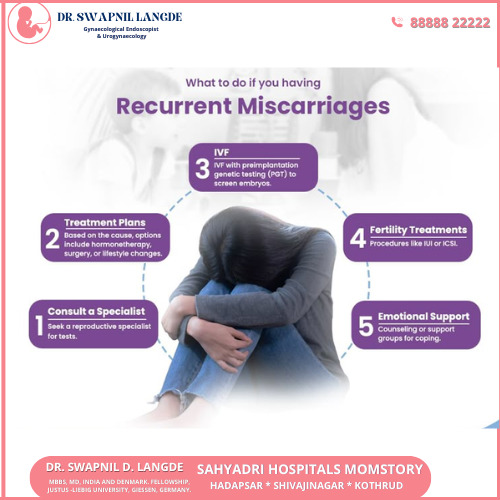#recurrent miscarriage
Explore tagged Tumblr posts
Text









Hello, I’m Yennie Fer, and I’m here to share my story that has forever hit me the hardest. Some Can Only Imagine is a memoir about my journey through recurrent miscarriages. This book isn’t just my story; it’s for anyone who has experienced the heartbreak of losing a child, those who have struggled in silence, and for educating those who cannot comprehend the pain.
The link to my project is in the bio, but I appreciate anything to get my story out there 🥺 Let’s break the stigma and bring understanding and compassion 🫶🏻
Follow the project! Following is completely free!
12 notes
·
View notes
Text

after 5.5 years of infertility & 3 losses, we're so excited to announce our triple rainbow baby is due in october!! so many long sleepless nights wondering why me, why did i lose 3 of my babies? why can't i get pregnant again? we got to see our little bean jumping around like crazy, all their fingers and toes formed 🥹 i'm so in love & can't wait to be a mama 💛🌈
#mine#pcos infertility#infertility#infertility warrior#recurrent miscarriage#miscarriage#rainbow baby#triple rainbow baby#pregnancy#pregnant#first time mom
17 notes
·
View notes
Text

Are you struggling with recurrent miscarriage? Our expert offers genetic counseling, hormone support, medical evaluation, and more to help you achieve a healthy pregnancy. Get the right treatment & care. There is hope.
For personalized advice, consult Dr. Asmita Dongare!
Dr. Asmita Dongare (Obstetrician and Gynecologist)Location :
✅CLOVERLEAF SPECIALITY CLINIC, WAKAD
Address: Near Bumkar Chowk, Wakad
✅Contact us for more information & Appointment
🌐Book an Appointment: https://www.drasmitadongare.com/book-an-appointment/
#Recurrent miscarriage#Obstetrician and Gynecologist in Wakad#Pune#High Risk Pregnancy Treatment in Wakad#Infertility Treatment in Wakad#Best Gynecologist in Wakad
0 notes
Text
#gynecologist manhattan#best obgyn nyc#obgyn manhattan#best obgyn in nyc#early pregnancy monitoring doctors new york#pregnancy monitoring#miscarriage#recurrent miscarriage
0 notes
Text
Periodically, I remember how absolutely fucked up the necromancers in TLT are meant to look. Like, necromancy does an absolute number on people physically.
Harrow is "rather small and feeble".
Necromantic Ianthe is "the starved shadow" of her non-necromantic twin.
Our first description of Palamedes is "a rangy, underfed young man" who is "gaunt".
Silas is "knife-faced...He had a necromancer build."
Ianthe parodies make-over scenes in House novels with "if the hero’s a necromancer it’ll be described like, ‘His frailty made his unearthly handsomeness all the more ephemeral'"
Jod acknowledges to Wake that even small children with aptitude would look odd to non-House eyes: "“I have access to any number of cute pictures of necromantic toddlers with their first bone. They don’t make for fat-cheeked roly-poly babies, but they’ve got a certain something."
In As Yet Unsent, Judith brags about her previous physical fitness: "I could run a kilometre in ten minutes, which was among the fastest for my adept group in the junior reserves." Which is about double the time you might expect for a physically fit woman her age.
In non-necromancer-friendly New Rho, Harrow's body is mistaken for a child's and has to be explained as a result of starvation and trauma to seem plausible: "Pyrrha explained without missing a beat that what with everything Nona had gone through she had been ill and still didn’t eat very much, which was why she was so knobbly and undergrown. The nice lady said that yes, many of the children had problems like that, but it was still hard to imagine Nona was anywhere over fourteen, wasn’t it?"
Tamsyn Muir's descriptions of the Canaan House gang on Tumblr back this up: "Judith is somewhat less completely scrawny than other necromancers on the cast, though she should be less built than Marta is", Palamedes is "seriously underfed" and "bony", Harrow is "scrawny".
And that's just what I can think of off the top of my head - I'm sure there's more.
Anyway, necromancers aren't slender in a conventionally attractive way, they're gaunt in a concerning way...and probably the only reason no one instantly clocked that Coronabeth wasn't a necromancer was because they all just thought it was par for the course that a Third House princess would have had a lot of plastic surgery flesh magic.
#the locked tomb#tlt#And that's not even getting into the other fun and exciting aspects of necromantic health like unusual cancers and recurrent miscarriages#The joy of the death of the author of course is that you can draw or imagine characters any way you please
5K notes
·
View notes
Text
How's One To Know I'd Meet You Where the Spirit Meets the Bones
...well guys. This exists now. It is dark, trigger warnings in tags do apply broadly here. It's sad but there is a happy ending. It all ends up okay but there are definitely mentions and allusions to the darker topics in the tags (not in the main post here so people can filter <3)
Imrrick fic :D
Summary:
She is cleaved from the very depth of her soul, grown from the place where love and body meet to create something so distinctly, uniquely her. There is nothing in the world Imogen wouldn’t give for her, she’s sure of that much. She’d go through all of it again,– every single moment–if it meant in the end she had her.
AO3
Thanks my loves !!
Special shout out to @shadowofthoughts and @bookishbroadwaybish who have listened to me play with this idea for months really. And of course @siobhanbooks and @alexandia03 who pushed for this to be my next fic
@xadensbiceps my beloved you will always be famous thanks for listening to me doubt if I should write this
Tagging the tag list!! Let me know if you want off or on :)
@violent-little-thing @wonderstruckbyyou @bookishbroadwaybish @shadowofthoughts @court-of-secrets @essjaywrites @jurassicworldisbetter @siobhanbooks @freakishfandomfiend
ALSO special tag to @louellaart who's girl dad garrick sketch last week was what FINALLY made me unlock him (for this debut). That art was incredible my friend.
#tw recurrent miscarriage#tw pregnancy#tw pregnancy loss#tw mentions of still birth#mentions of child loss#imrrick#garrick and imogen#garrick tavis#imogen cardulo x garrick tavis#imogen cardulo#alls well ends well tag#the empyrean fanfiction#the empyrean
21 notes
·
View notes
Text

Miscarriage Mechanism
Reduction in Kat8 – an enzyme involved in maintaining the integrity of DNA – at the earliest stages after fertilisation is associated with recurrent pregnancy loss
Read the published research article here
Image from work by Shilei Bi, Lijun Huang and Yongjie Chen, and colleagues
Department of Obstetrics and Gynecology, The Third Affiliated Hospital of Guangzhou Medical University, Guangzhou, China
Image originally published with a Creative Commons Attribution 4.0 International (CC BY 4.0)
Published in Nature Communications, July 2024
You can also follow BPoD on Instagram, Twitter and Facebook
#science#biomedicine#immunofluorescence#biology#epigenetics#miscarriage#recurrent pregnancy loss#pregnancy#embryo development
3 notes
·
View notes
Text
Analysing The Causes of Recurrent Miscarriage: Ways of Improving the Success
Pregnancy comes with a lot of hope in the lives of the couples, and it turns into a nightmare when it ends with a traumatic miscarriage. Losing a pregnancy is not only about physical pain, but also it entails extreme psychological trauma. However, the miscarriage appears to be a personal loss to the women, but with recurrent miscarriage testing in London, it is possible to open up a world of hope for them.
#gynaecology clinic london#Miscarriage specialist London#Miscarriage test London#Recurrent Miscarriage Testing London
0 notes
Text
What to Do If You Are Having Recurrent Miscarriages?

Recurrent miscarriages can be an emotionally and physically distressing experience for couples trying to conceive. If you have suffered multiple pregnancy losses, it is important to understand the underlying causes and explore potential treatment options. Dr. Swapnil Langde, a renowned specialist in reproductive health, shares key insights on recurrent miscarriages and how to address them effectively.
Understanding Recurrent Miscarriages
A miscarriage is the loss of pregnancy before 20 weeks. When a woman experiences two or more consecutive miscarriages, it is considered recurrent pregnancy loss (RPL). Identifying the cause of repeated miscarriages is crucial in determining the appropriate treatment and improving the chances of a successful pregnancy.
Common Causes of Recurrent Miscarriages
Genetic Abnormalities - Chromosomal defects in the embryo can lead to pregnancy loss.
Hormonal Imbalances - Conditions such as polycystic ovary syndrome (PCOS), thyroid disorders, and luteal phase defects may affect pregnancy maintenance.
Uterine Abnormalities - Structural issues like fibroids, polyps, or an abnormally shaped uterus can interfere with implantation and fetal growth.
Autoimmune Disorders - Conditions such as antiphospholipid syndrome (APS) or lupus can cause blood clotting issues leading to miscarriage.
Infections - Certain infections affecting the reproductive system may increase the risk of miscarriage.
Lifestyle Factors - Smoking, excessive alcohol consumption, obesity, and high stress levels can contribute to pregnancy loss.
Blood Clotting Disorders - Thrombophilia and other clotting disorders can lead to inadequate blood supply to the placenta, causing miscarriage.
Steps to Take If You Have Recurrent Miscarriages
Consult a Specialist
Seeking medical advice from an expert like Dr. Swapnil Langde can help in determining the exact cause of pregnancy loss and planning appropriate interventions.
Undergo Medical Evaluations
Your doctor may recommend genetic testing, blood tests, ultrasound, and hysteroscopy to assess reproductive health and identify potential concerns.
Address Underlying Health Issues
Managing thyroid disorders, diabetes, or autoimmune diseases can significantly improve pregnancy outcomes.
Lifestyle Modifications
Maintaining a healthy weight, eating a balanced diet, avoiding harmful substances, and reducing stress through meditation or counseling can enhance fertility.
Medications and Treatment Options
Depending on the cause, treatment may include hormonal therapy, blood thinners, antibiotics for infections, or surgical corrections for uterine abnormalities.
Preimplantation Genetic Testing (PGT)
If genetic abnormalities are suspected, PGT can be performed during IVF to select healthy embryos for implantation.
Emotional Support and Counseling
Dealing with recurrent miscarriages can be overwhelming. Joining support groups, seeking therapy, or discussing concerns with your partner can provide emotional relief.
Conclusion
Experiencing recurrent miscarriages can be heartbreaking, but with the right medical guidance and lifestyle changes, many couples can achieve a successful pregnancy. If you have faced multiple pregnancy losses, consult Dr. Swapnil Langde for a thorough evaluation and a personalized treatment plan. Early diagnosis and proper care can significantly improve your chances of carrying a healthy pregnancy to term.
0 notes
Text
Hope and Solutions for Recurrent Pregnancy Loss
Recurrent Pregnancy Loss (RPL), defined as the loss of two or more consecutive pregnancies, is a deeply emotional experience for couples. It can leave individuals feeling disheartened and uncertain, but there is hope. With advancements in medical science, treatments for recurrent miscarriage are improving, offering new possibilities for couples who have experienced multiple pregnancy losses. In this article, we will explore the causes, diagnostic processes, and the most effective recurrent pregnancy loss treatment options available, including insights from Dr. Pranathi Reddy Gynecologist, one of the leading experts in recurrent pregnancy loss treatment.
Understanding the Causes of Recurrent Pregnancy Loss
Recurrent pregnancy loss is not always a random event. Several factors can contribute to this condition, and understanding the root cause is crucial for determining the appropriate treatment. Genetic abnormalities in one or both parents are a common factor, which may result in miscarriages due to chromosomal abnormalities in the fetus. Additionally, uterine abnormalities, such as fibroids, a septate uterus, or scarring from previous surgeries, can hinder a pregnancy from implanting or developing properly.
Hormonal issues also play a significant role in RPL. Progesterone deficiency or thyroid disorders can prevent the body from maintaining a pregnancy, while immune system disorders, like antiphospholipid syndrome (APS), can increase the risk of blood clotting and placental complications. Lifestyle factors, including smoking, obesity, and excessive alcohol consumption, may also contribute to RPL. In many cases, the cause remains unexplained, even after thorough investigation.
Diagnosis: Identifying the Root Cause of RPL
The first step in addressing recurrent pregnancy loss is an accurate diagnosis. A thorough assessment by a recurrent pregnancy loss specialist in hyderabad, like Dr. Pranathi Reddy Gynecologist, is essential to uncover the factors affecting pregnancy. Typically, the diagnostic process includes:
Genetic Testing: To check for chromosomal abnormalities in either parent or the fetus.
Imaging Studies: Ultrasounds, hysteroscopies, or MRIs can reveal structural issues within the uterus that may be affecting implantation.
Hormonal Blood Tests: These can help identify imbalances in key hormones like progesterone or thyroid hormones that might prevent a pregnancy from sustaining.
Dr. Pranathi Reddy Gynecologist, known for her expertise in recurrent pregnancy loss treatment in hyderabad, utilizes the latest diagnostic tools and techniques to ensure a thorough evaluation, offering couples a personalized approach to managing RPL.Dr. Pranathi Reddy Gynecologist is highly regarded for offering recurrent miscarriage treatment in hyderabad that combines medical intervention with lifestyle guidance, ensuring a holistic approach to overcoming RPL.
Advances in Recurrent Pregnancy Loss Treatment
The field of recurrent pregnancy loss treatment has seen significant progress in recent years. One promising area of research is stem cell therapy, which is being explored to enhance uterine function and improve the chances of a successful pregnancy, particularly in cases where no specific cause can be identified. In addition, advancements in genetic testing and immunological therapies are providing more personalized and effective treatment options for couples struggling with RPL.
Best Choice for Recurrent Pregnancy Loss Treatment
Choosing the right recurrent pregnancy loss specialist in hyderabad is critical to finding the best treatment plan. Dr. Pranathi Reddy Gynecologist stands out as one of the best recurrent pregnancy loss treatment doctor in hyderabad, offering a comprehensive approach to care. With a deep understanding of the emotional and physical challenges faced by couples experiencing RPL, Dr. Reddy combines advanced medical treatments with compassionate care, ensuring the best possible outcomes for her patients.
Recurrent pregnancy loss is a difficult and emotional journey, but with the right support and treatment, many couples can overcome it. If you are struggling with RPL, it is important to seek guidance from a qualified specialist like Dr. Pranathi Reddy Gynecologist. With accurate diagnosis, personalized treatment plans, and the latest advancements in fertility care, the dream of parenthood can still be within reach. Whether through genetic testing, or lifestyle changes, there are many avenues to explore for treatment for recurrent miscarriage in hyderabad and successful pregnancy outcomes.
#best recurrent pregnancy loss treatment doctor in hyderabad#treatment for recurrent miscarriage in hyderabad#recurrent pregnancy loss specialist in hyderabad
0 notes
Text
#infertility treatment#best gynecologist and obstetrician in mumbai#best gynecologist in mumbai for pregnancy#diagnosis of recurrent miscarriage#fertility treatment#gynecologist in mumbai#pregnancy loss#pregnancy loss treatment in mumbai#miscarriage#treatment for recurrent miscarriage#infertility - best gynecologist in mumbai#infertility specialist in mumbai#dr neelima mantra gynaecologist in mumbai#dr neelima mantri
0 notes
Text
time for our first medicated cycle! 100mg clomid. wish us luck🌈👼🏻
#mine#ttc#clomid#ttc journey#pcos#infertility#ttc with pcos#personal#rainbow baby#miscarriage#recurrent miscarriage
1 note
·
View note
Text
0 notes
Text
My Fifth Miscarriage
“Right now I am day 6 post loss 5. I am drinking prosecco and eating popcorn and writing a blog that I will probably never post.I knew i lost it as soon as I looked in the toilet. I had bled the night before and it was bright red. Not the transparent bloody discharge and spotting that’s normal in early pregnancy, but red like a rose and the color of hell. I told myself it was ok, because I had…

View On WordPress
0 notes
Text
#aurawomen#aura#ivf#fertility#infertility#pregnancy#iui#iuisuccess#ivfsuccess#maternity#recurrent#recurrent miscarriages#recurrentimplantationfailure#recurrentpregnacyloss#infertilitysupport
1 note
·
View note
Text
Repeated Miscarriages: Insights and Support
For individuals impacted, experiencing recurrent miscarriages can be emotionally and physically taxing. To help you comprehend this complicated illness, this article explores the potential reasons, which include uterine anomalies, hereditary factors, and hormone imbalances. Learn from professionals in the field of medicine about testing, diagnosis, and possible treatments. Examining the reasons behind recurrent miscarriages will help you make wise decisions on your path to a fruitful pregnancy.
0 notes